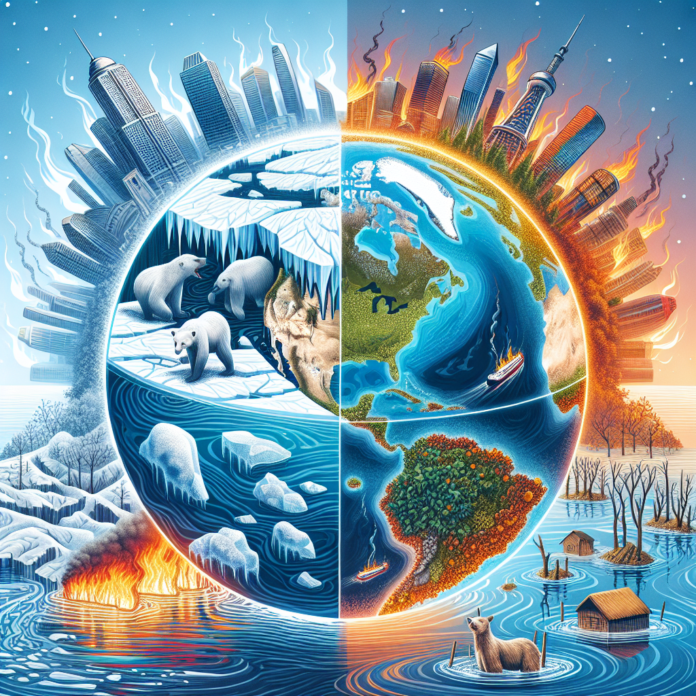Impact of Climate Change on Vulnerable Populations
“`html
Who Bears the Brunt of a Warming Planet?
The impacts of climate change are felt globally, yet certain regions and communities are disproportionately affected. As the Earth’s temperature rises, the consequences of climate change manifest in various forms—ranging from extreme weather events to rising sea levels and shifting ecosystems.
Vulnerable Populations
Marginalized communities, including low-income households, indigenous peoples, and those living in developing countries, often face the greatest risks from climate change. These groups typically have fewer resources to adapt to changing conditions, making them more susceptible to the adverse effects of extreme weather, food insecurity, and health problems associated with climate-related changes.
Geographic Disparities
Certain geographical areas are more vulnerable to the impacts of climate change. Coastal regions are at an increased risk of flooding and erosion due to rising sea levels, while arid regions may suffer from prolonged droughts and water scarcity. Urban areas, particularly those with poor infrastructure, can experience intensified heat waves and air pollution, leading to significant public health challenges.
Economic Consequences
The economic repercussions of climate change further exacerbate existing inequalities. Industries that rely heavily on natural resources, such as agriculture, fishing, and forestry, are particularly at risk. As climate change affects crop yields and fish stocks, livelihoods are threatened, pushing vulnerable communities deeper into poverty.
Health Implications
Health is another critical area where the impacts of a warming planet are felt most acutely. Increased temperatures can lead to heat-related illnesses, while changing weather patterns can exacerbate the spread of infectious diseases. Vulnerable populations, such as the elderly and those with pre-existing health conditions, are especially at risk.
Climate Migration
As conditions become increasingly uninhabitable due to climate change, migration is expected to rise. People may be forced to leave their homes due to flooding, drought, or other climate-related disasters. This movement can lead to overcrowding in urban areas, strain on resources, and heightened tensions between communities.
Global Responsibility and Action
Addressing the impacts of climate change requires a concerted global effort. Policymakers must prioritize the needs of the most vulnerable populations in climate action plans, ensuring that resources and support are directed where they are needed most. This includes investing in sustainable practices, developing resilient infrastructures, and promoting social equity in climate policies.
Ultimately, understanding who bears the brunt of a warming planet is crucial for creating effective strategies to mitigate the impacts of climate change and support those who are most affected. Collective action and a commitment to sustainability are essential to protect our planet and its inhabitants.
“`
